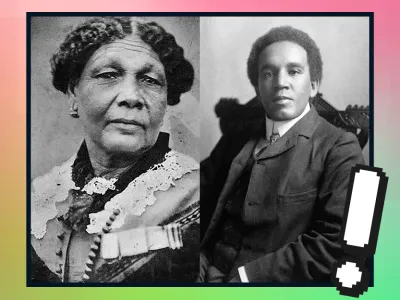
MY JOURNEY WITH DERMATILLOMANIA
In any given year, approximately 20% of adolescents will experience a mental health problem. However, it’s important to remember that whatever issues you may face, they do not define you. Today, NCS Grad Yasmin is here to tell us why she is more than her mental health, and explain her journey with dermatillomania…
Dermatillomania, otherwise known as Excoriation Disorder or a chronic skin picking disorder, is a body-focused repetitive behavioural disorder (BFRB) and affects approximately 2-5% of the population. This disorder is related to OCD (Obsessive Compulsive Disorder), Trichotillomania (a Repetitive Hair-Pulling Disorder), and BBD (Body Dysmorphic Disorder). Dermatillomania usually evolves as a coping mechanism for dealing with stress and feelings of boredom, anxiety, guilt and shame, and can also be caused by other skin conditions like eczema or acne. Dermatillomania acts as a form of self-soothing and self-grooming, even with its detrimental physical consequences on the skin. This type of picking is usually common in people who experience high levels of anxiety and use this as a form of temporary relief from it.
My name is Yasmin, I am 18 and I unfortunately suffer from dermatillomania, anxiety, depression, differential OCD and perfectionism. All of which have increased dramatically in the last three years whilst doing my GCSEs and A-levels. Many of the feelings I experience are due to my perfectionism when it comes to college work, and this actually hinders my progress and has made me fall behind several times. My heightened experience of skin picking in recent years has made me see that I showed elements of this disorder at a young age; picking my lips, picking the skin around my fingertips and fingernails, and spending long periods of time as a young teenager in front of the mirror trying to obliterate any visible acne - which then of course led to it looking even worse. Dermatillomania behaviours like these are common with almost everyone, but they are seldom recognised as disorderly behaviours by most people. Personally, I had no clue that what I was experiencing was even a disorder, until I had a particularly bad experience with it and decided to research it further.
This disorder, and others similar to it, may make you squirm at the idea of what they are, but it's important to overlook that initial reaction and recognise that these behaviours have not been chosen by the people who suffer from them. For example, I experience something called unconscious picking, which is as blatant as it sounds. Much like the way we unconsciously daydream or daze off into our own thoughts about the past, present and future - unconscious picking begins with thinking about or experiencing particular feelings that cause boredom, guilt, sadness, anger, shame, stress, anxiety, a need to escape, and also an unconscious need to experience a physical feeling which diverts attention away from these generally overwhelming and stressful mental aspects.
This not only causes me to unknowingly put myself into a vicious cycle of picking, but by the time I realise I am doing it, it is much too late to reverse the consequences. Another very significant element of this disorder that I have not seen written or talked about much, is that the behaviour itself is somewhat possessive. Once the picking begins, my hand is entranced in some sort of mental hypnosis and it is incredibly difficult to stop. This entire self-soothing ritual does not end once I manage to calm myself and remove my hands away, because I now have to deal with the mess I have created. It takes varying amounts of time to remove as much of the damage (which usually looks like dandruff) as possible from my hair depending on how bad and how long the picking lasts for. Unfortunately, one of the longest periods of time I have spent solely in front of the mirror picking due to this disorder was around four hours.
The cyclical aspects of picking are primarily caused from the picking itself. It causes scabs, sores and wounds, and as they heal, they are rough and feel abnormal on the skin. This is something that is probably the main reason for someone to start picking, because their hands scan the body in times of stress and discomfort for anything that feels like it can be removed, which is both soothing and destructive.
It is a lengthy and delicate process to deal with the consequences of picking, which usually consists of brushing my hair for a while, and then having to meticulously take out the rest of what I can see by hand. This can take up to an hour, maybe more. Then I wash my hair and pray that it doesn't happen again for at least a couple of hours, if not until the next morning. One of the misfortunes of having my scalp as the main location of my disorder is that it's a place which is extremely noticeable, unless I manage to pull off wearing a hat. It is different for everyone who suffers from Dermatillomania, but it is generally a little more concerning for those who have it in very noticeable places.
Sometimes if the picking becomes particularly bad, it can cause painful sores and red patches on the skin, and scalp in my case. It becomes harder to brush my hair and take hot showers and use products on my hair. It is important to treat any sores, wounds and inflamed skin tissue which have been damaged through picking, otherwise it can lead to infection and scarring.
I have learnt to live with this disorder and make it as non-impactful on my life as possible. The most important thing I did was begin CBT therapy. Cognitive Behavioural Therapy is usually short-term therapy, and is one of the best ways of learning methods to cope with different mental health issues and disorders. It teaches you techniques and healthy coping mechanisms to practice and keep as a mental toolbox to help in times of stress and need.
I primarily used this form of therapy to help my other mental health issues which made my dermatillomania worse, and by learning to live with those it became much easier to manage my skin picking as well. I’m also currently in the process of finding a new therapist who is specifically trained in habit-reversal training. Some people might be recommended by their GP to go on medication for certain issues which may need treatment, and helping those issues might lead to the improvement of their disorders - but that is entirely subjective to each and every person and their experience.
Another very important thing I have done which has helped a lot is meditation and practicing non-judgement and compassion. I am now more able to identify the thoughts and feelings which I experience when I notice myself picking and I don't experience unconscious picking as much as before. It’s allowed me to feel much more in control of what I'm doing, and I can observe the situation better without increasing it emotionally through self-judgement and shame. I practice breathing exercises whenever I feel stressed or overwhelmed, and I am improving in letting go of any intrusive thoughts that may enter my mind due to some OCD tendencies. Letting go of thoughts is extremely difficult, but I like to use the method of visualising my thought as a bubble and it just floats away. It may not literally allow me to let go of some thoughts I have, but it aids in the concept of experiencing thoughts without being attached to them or letting them define me.
Living with dermatillomania is difficult and puts a lot of strain on my mental health, but I am living proof that you can experience this disorder and still find many ways to be happy and improve yourself, even if it may take more effort than some other people. This disorder deserves much more recognition and awareness, and I hope that this article has helped to do that.
If you’re having any concerns about anxiety, a behavioural disorder, loneliness, isolation, low self-esteem or anxiety; you can contact The Mix who offer free information and mental health support to under 25s.




